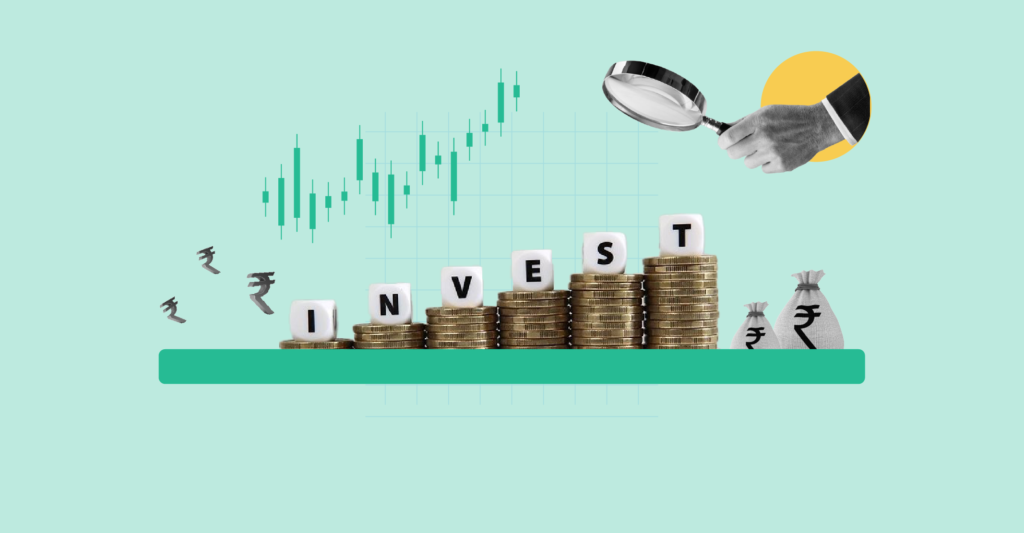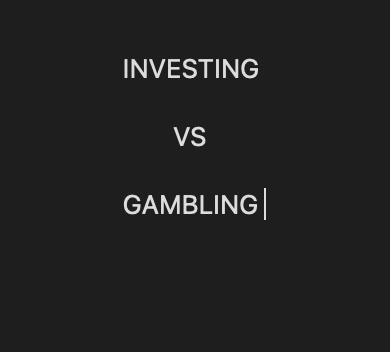At the beginning of my financial journey, I, too, believed that investing was nothing more than a form of gambling. The idea of risking my hard-earned money in the unpredictable world of stocks and markets seemed daunting, and I was skeptical about the prospects of consistent returns. However, with time and valuable experience, my perception underwent a significant transformation. As I delved deeper into the world of investing, I came to realise that it is far from being a mere gamble.

Investing is not a part of gambling. While both involve some risk, the underlying ideas of investing and gambling are drastically different. This article will explain why money earned through investing is not a gamble and why understanding this distinction is critical for long-term financial success.
Goals & Purpose
One of the primary distinctions between investing and gambling is their purpose and goals. Investing is a long-term strategy for increasing wealth through the generation of returns and the achievement of financial objectives. In contrast, gambling is primarily based on chance, with the objective of winning money quickly. Investors make informed decisions based on research, analysis, and market trends, while gamblers rely on luck and random outcomes.
Risk Control
Risk exists in both investing and gambling, but how it is managed differentiates the two activities. To mitigate the effect of prospective losses, wise investors diversify their portfolios, spreading risk across multiple assets. Before making any investment decision, they analyse market trends and undertake due research. In contrast, gamblers frequently wager all of their money on a single bet, hoping for a favourable outcome without a thorough risk management approach.

Knowledge & Education
Knowledge, education, and a commitment to stay informed about market trends and economic data are required for successful investing. Investors are always learning, adapting, and refining their tactics in response to the shifting financial world. Gambling, on the other hand, is frequently spontaneous and based on impulse rather than reasoned judgements. The more informed an investor is, the better equipped they are to make sound decisions.
Time Scale
Investing and gambling also have quite different time frames. Long-term goals are common among investors, with the goal of increasing wealth over years, decades, or even generations. They are aware that the market fluctuates and are prepared to endure short-term volatility. Gambling, on the other hand, produces immediate results, with outcomes established in a matter of minutes.

Social Contribution
Investing is critical to the economy because it provides capital to businesses and industries, fosters innovation, creates jobs, and promotes economic growth. It promotes enterprise and wealth generation, which benefits society as a whole. Gambling, on the other hand, does not contribute to productive economic activity; it is fundamentally a zero-sum game in which one party’s profits come at the expense of another.
Conclusion

In conclusion, investing is not a gamble. It is a disciplined approach to wealth-building, based on research, analysis, risk management, and a long-term vision. While both investing and gambling entail risk, their fundamental objectives, strategies, and impacts on society set them apart. Understanding this difference is vital for individuals seeking to secure their financial future and make informed decisions to achieve their financial goals. Remember, investing is about calculated decisions and patience, not relying on mere chance or luck.
If you liked this reading, and want to read more of our handcrafted blog posts, visit our Blog page.

No responses yet